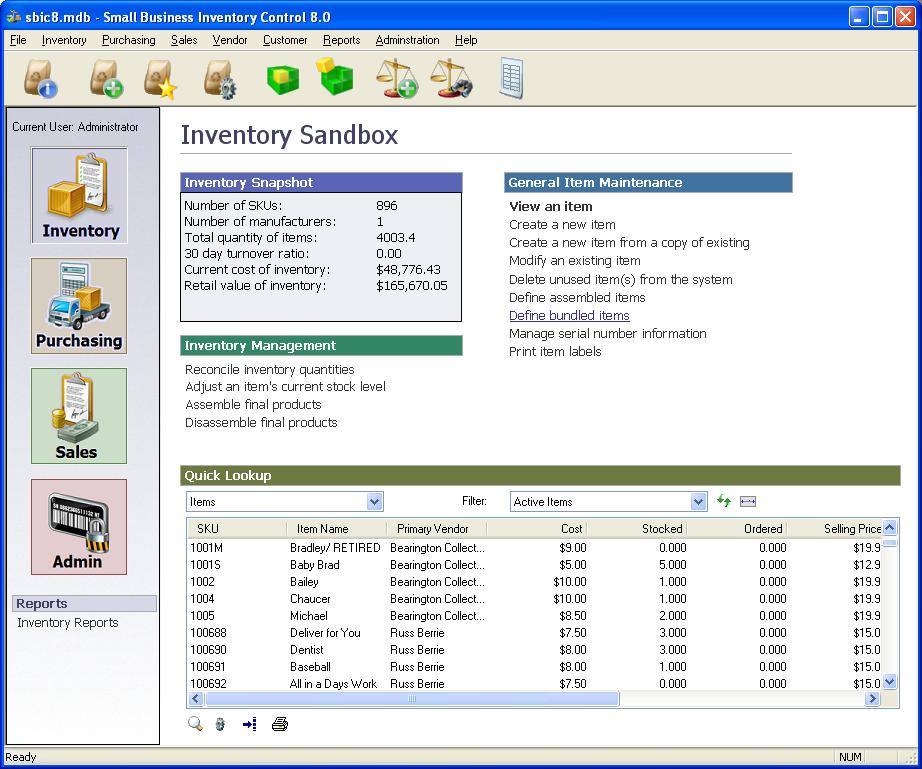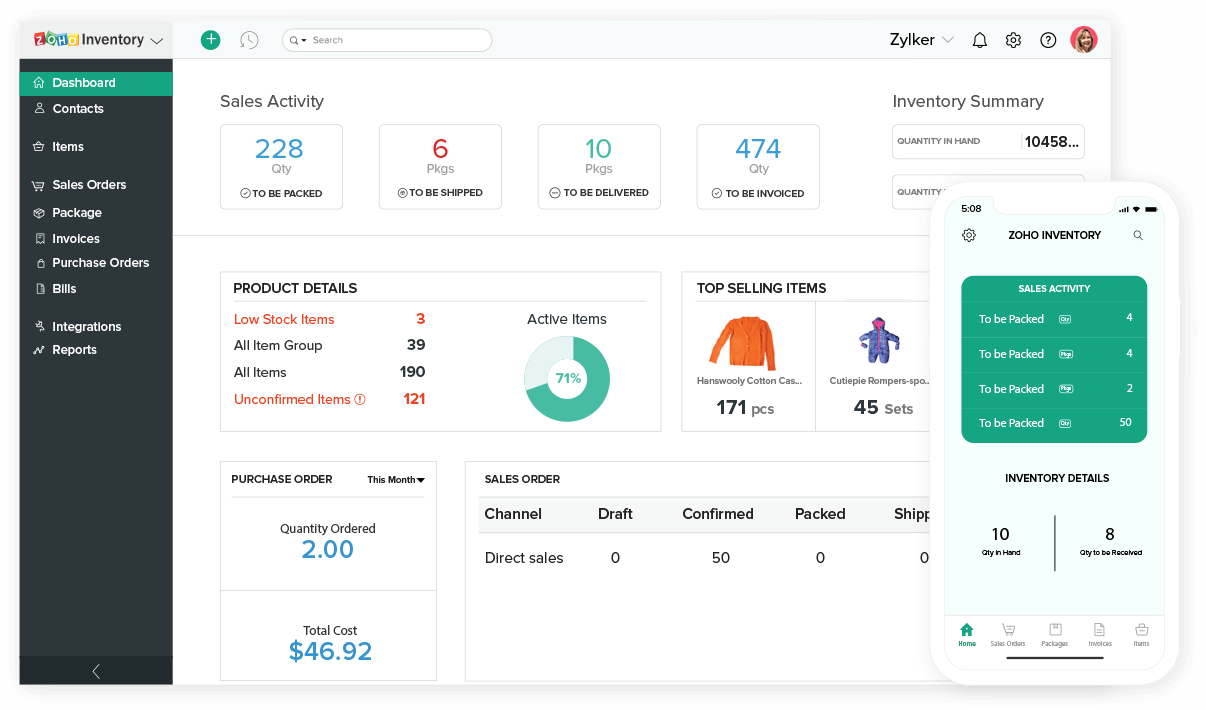Small business software inventory is crucial for businesses to effectively manage their software assets. It involves tracking, organizing, and updating information about all software installed on company devices. This guide provides an overview of small business software inventory, its benefits, types, best practices, and case studies to help businesses optimize their software management.
By implementing a software inventory management tool, small businesses can streamline their operations, reduce costs, and enhance security. This comprehensive guide will empower you with the knowledge and strategies to establish an effective software inventory management system for your business.
Overview of Small Business Software Inventory

Small business software inventory refers to the process of identifying, tracking, and managing all software applications and programs used within a small business. This inventory includes both installed software on physical devices and cloud-based applications accessed via the internet.
Software inventory management is crucial for small businesses as it provides a comprehensive view of all software assets, enabling efficient management and decision-making. It helps businesses stay organized, reduce costs, improve security, and ensure compliance with licensing agreements.
Importance of Software Inventory Management
- Enhanced visibility and control:Software inventory provides a central repository for all software information, allowing businesses to easily track and manage their software assets.
- Cost optimization:By identifying unused or underutilized software, businesses can optimize their software spending and avoid unnecessary expenses.
- Improved security:Software inventory helps identify outdated or vulnerable software, enabling businesses to prioritize updates and patches to mitigate security risks.
- Compliance management:Software inventory ensures compliance with software licensing agreements, reducing the risk of legal penalties and protecting intellectual property.
- Effective decision-making:A comprehensive software inventory provides valuable insights into software usage patterns, enabling businesses to make informed decisions about software purchases, upgrades, and maintenance.
Benefits of Using Software Inventory Management Tools: Small Business Software Inventory
Software inventory management tools offer numerous advantages to small businesses, enabling them to streamline their operations, reduce costs, and enhance security.
One significant benefit is the automation of inventory tracking. These tools provide real-time visibility into software assets, eliminating manual processes and reducing the risk of errors. This automation saves time and allows businesses to allocate resources more effectively.
Cost Savings
Software inventory management tools help businesses reduce costs by optimizing software usage and eliminating unnecessary purchases. By tracking license usage and identifying underutilized software, businesses can optimize their software portfolio and avoid overspending on licenses they don’t need.
Improved Security
These tools play a crucial role in improving security by providing a comprehensive view of software assets and their vulnerabilities. They enable businesses to identify outdated or vulnerable software and prioritize updates to mitigate security risks. Additionally, they assist in detecting and preventing unauthorized software installations, reducing the risk of malware and data breaches.
Types of Software Inventory Management Tools

Software inventory management tools come in various types, each designed to meet specific needs and offer different features. Understanding the types of tools available can help businesses choose the most suitable solution for their requirements.
On-Premises Software Inventory Management Tools
- Installed locally on a company’s own servers, providing greater control over data and security.
- Require upfront investment in hardware, software, and maintenance, which can be costly for small businesses.
- Examples: Microsoft System Center Configuration Manager (SCCM), LANDesk Management Suite
Cloud-Based Software Inventory Management Tools
- Hosted by a third-party provider and accessed over the internet, offering flexibility and scalability.
- Eliminate the need for local hardware and maintenance, reducing IT costs and complexity.
- Examples: SolarWinds Service Desk, Freshservice, ManageEngine ServiceDesk Plus
Agent-Based Software Inventory Management Tools
- Use agents installed on each managed device to collect data and communicate with the central management console.
- Provide detailed and real-time information about software usage, licensing compliance, and hardware configurations.
- Examples: Ivanti Endpoint Manager, Kaseya VSA, Atera
Agentless Software Inventory Management Tools
- Operate without installing agents on managed devices, reducing the impact on system performance.
- Relies on network scanning and other techniques to gather information, which may be less comprehensive than agent-based tools.
- Examples: Spiceworks, Open-AudIT, Network Inventory Advisor
Open-Source Software Inventory Management Tools
- Freely available and customizable, offering flexibility and cost savings.
- Requires technical expertise to implement and maintain, which may not be suitable for all businesses.
- Examples: GLPI, OCS Inventory NG, OpenITSM
Commercial Software Inventory Management Tools, Small business software inventory
- Proprietary solutions offering a wide range of features and support, but typically come with a cost.
- Provide comprehensive functionality, including automated discovery, license management, and patch management.
- Examples: ServiceNow IT Asset Management, BMC Helix Asset Management, VMware Workspace ONE
Case Studies of Small Businesses Using Software Inventory Management Tools
Small businesses that have successfully implemented software inventory management tools have experienced numerous benefits, including improved inventory accuracy, reduced costs, and increased efficiency. Here are a few case studies that highlight the positive impact of these tools on small businesses:
Case Study 1: Small Retail Store
A small retail store was struggling to keep track of its inventory manually. The store’s owner was often out of stock of popular items, and customers were frustrated by the lack of availability. The store also had a high rate of inventory shrinkage, which was costing the business money.
After implementing a software inventory management tool, the store was able to improve its inventory accuracy by 95%. The store’s owner can now track inventory levels in real-time, and the store has experienced a significant reduction in inventory shrinkage.
Case Study 2: Small Manufacturing Company
A small manufacturing company was facing challenges with managing its inventory. The company had multiple warehouses, and it was difficult to keep track of inventory levels across all locations. The company also had difficulty forecasting demand, which led to overstocking and understocking.
After implementing a software inventory management tool, the company was able to improve its inventory visibility by 80%. The company can now track inventory levels in real-time across all locations, and it has improved its demand forecasting accuracy by 60%.
The company has also reduced its inventory carrying costs by 20%.
Lessons Learned
Small businesses can learn a lot from the experiences of other small businesses that have successfully implemented software inventory management tools. Here are a few lessons learned:
- Software inventory management tools can help small businesses improve inventory accuracy, reduce costs, and increase efficiency.
- Small businesses should choose a software inventory management tool that is designed for their specific needs.
- Small businesses should implement a software inventory management tool with the help of a qualified professional.
- Small businesses should regularly review their inventory management processes to ensure that they are getting the most out of their software.
Conclusion

In summary, software inventory management is crucial for small businesses to maintain an organized and efficient IT infrastructure. By implementing a software inventory management tool, small businesses can gain numerous benefits, including improved security, reduced costs, enhanced compliance, and increased productivity.
Embracing software inventory management practices can empower small businesses to make informed decisions about their IT assets, streamline their operations, and drive success in the competitive business landscape.
We strongly encourage small businesses to consider implementing a software inventory management tool to optimize their IT operations and reap the numerous advantages it offers. By taking proactive steps towards managing their software assets, small businesses can establish a solid foundation for growth and innovation.
Closing Summary
In conclusion, small business software inventory is essential for efficient software management. By following the best practices Artikeld in this guide, businesses can optimize their software usage, improve security, and make informed decisions about their software assets. Implementing a software inventory management tool can significantly benefit small businesses, helping them stay organized, compliant, and competitive in today’s digital landscape.
Essential Questionnaire
What is the purpose of software inventory management?
Software inventory management helps businesses track, organize, and update information about all software installed on their devices. It provides a comprehensive view of software assets, enabling businesses to optimize their usage, reduce costs, and enhance security.
What are the benefits of using a software inventory management tool?
Software inventory management tools offer numerous benefits, including time savings, cost reduction, improved security, increased compliance, and better decision-making.
What types of software inventory management tools are available?
There are various types of software inventory management tools available, each with its own features and capabilities. Some common types include agent-based tools, agentless tools, and cloud-based tools.
